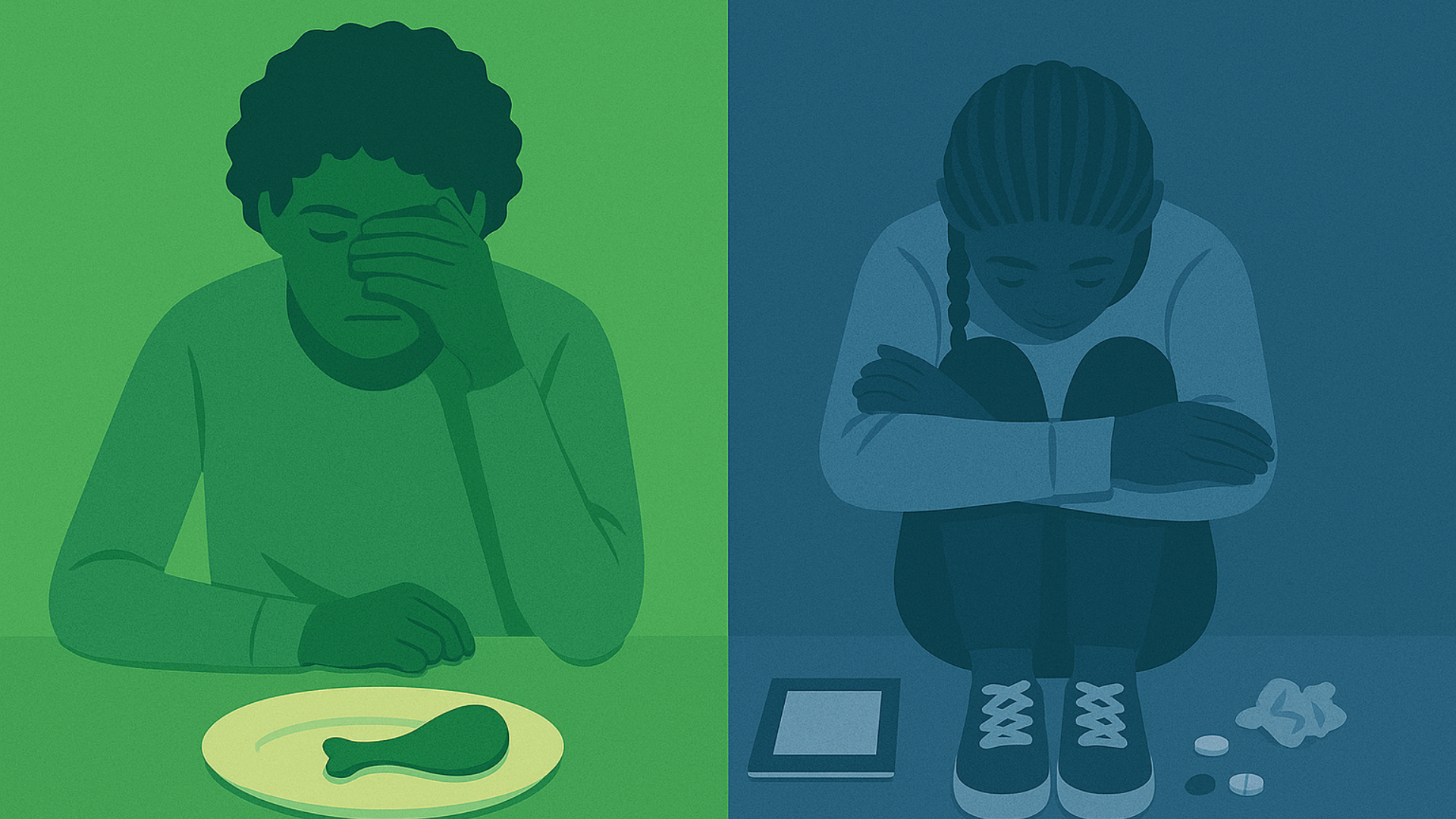Let Your Heart Be Your Guide: The Connection Between Nutrition, Mindful Eating, and Heart Health

By Thrive Wellness Sacramento Dietitian Moriah Martin, RDN
HOW EATING HABITS CAN CONTRIBUTE TO HEART PROBLEMS
Malnutrition, Restrictive Eating Disorders, and Heart Failure
A strong, healthy heart efficiently pumps blood that delivers oxygen and nutrients throughout the body. When an individual isn’t nourishing their body with a variety of foods adequately and consistently, they may lack the nutrients necessary to fuel their body’s processes. If the heart endures insufficient nourishment for too long, it may slow down, weaken, and eventually fail. The restrictive eating behaviors associated with anorexia and the purging behaviors associated with bulimia are risk factors for heart failure .
Diet, Binge Eating Disorder, and Blood Clots
A diet that is high in saturated fats and trans fats can contribute to the formation of blood clots, which impede blood flow. When blood flow is restricted, cardiovascular diseases may develop and lead to life-threatening conditions such as heart attack and stroke. Because individuals struggling with binge eating disorder (BED) engage in recurrent episodes of eating large quantities of food, they may face an increased risk for cardiovascular diseases brought on by blood clots. Eating a diverse array of foods, such as vegetables, fruit, poultry, fish, and whole grains, can help mitigate the risk of blood clots.
HOW MINDFUL EATING CAN BE A KEY TO HEART HEALTH
Incorporating mindfulness into your daily nourishment can promote heart health. By slowing down, appreciating your meal, and engaging your senses in the experience of eating, you will become more in tune with the intention behind eating — fueling your body and mind. When practicing mindful eating, you’re more likely to be aware of your body’s natural hunger and fullness cues, as well as what nutrients your body is craving. Instead of eating out of habit, emotional state, or obligation, you’ll come to purposefully nourish your body adequately, consistently, and with a wide range of foods. As a result, your heart will have the sustenance it needs to continue pumping away and ensure you thrive.
HEALING FOR HEARTS, MINDS, AND SPIRITS
If you’re facing food-related struggles, such as an eating disorder or disordered eating behaviors, Thrive’s mental, behavioral, and physical health experts can tailor a treatment plan that cares for your entire well-being. You can learn more about our integrated eating disorder treatment services by reaching out to us.
About the Author
Thrive Wellness Sacramento Registered Dietitian Moriah Martin, RDN
Moriah Martin boasts bachelor’s degrees in nutrition education from San Jose State University and dietetics from the University of Alabama and is a registered dietitian in California. With several years of experience in corporate wellness and nutrition counseling combined, her passion for promoting well-being is undeniable. As a registered dietitian at Thrive Sacramento, Moriah guides and encourages clients through eating disorder treatment. She takes great pride in walking alongside clients on their path to recovering their relationships with food and their bodies.
In addition to her professional endeavors, Moriah has donated her time and talents to a local LGBTQ center where she provides nutrition counseling and performs cooking demonstrations to community members.
The post Let Your Heart Be Your Guide: The Connection Between Nutrition, Mindful Eating, and Heart Health first appeared on Thrive Wellness.








